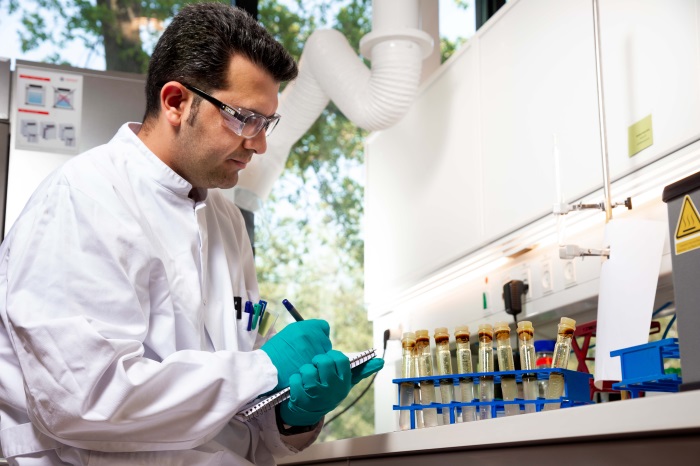Produced Water Management
This programme has a clear vision: To achieve zero harmful discharge to sea. We are developing solutions that address current regulations and anticipate new stringent ones.

Produced Water is the largest waste stream in oil and gas operations. In the North Sea region, most of this wastewater is discharged to sea after it has been extensively treated to meet current regulations. While current treatment processes mitigate environmental concerns when discharged offshore, the wastewater could still have negative environmental consequences.
The programme is divided into four research themes: Environmental impact, Produced water treatment, Produced water reinjection, and green chemicals.
Environmental impact
Within the Environmental impact research theme, we are developing new tools, processes, and workflows to comprehensively measure, identify, and map the specific components in produced water that are responsible for its toxicity to marine ecosystems.
The OSPAR (Oslo-Paris) convention regulates the discharge of produced water in the North Sea region. This convention specifies how much dispersed oil-in-water (oil droplets) and chemicals are allowed in the wastewater before they are discharged. Danish operators meet these requirements, but current water toxicity measurement methods (EIF - Environmental Impact Factor) do not have comprehensive coverage of all contributing components.
For these reasons, we are conducting thorough ecotoxicology analyses of the wastewater, including whole effluent testing, and testing for the presence of metals and organics. We also measure how quickly these toxic components break down in the marine environment. We have a set of projects focused on the development of new technologies that allow for the direct measurement of toxic components in produced water.
Our approach includes both the development of novel sensor devices and the adaptation of currently available tools from other industries. This focused approach helps us to identify persistent components, make accurate predictions for regulatory reporting, and evaluate new chemical solutions.
Produced water treatment
Within the Produced water treatment research theme, we are developing new technologies for treating produced water while improving the efficiency of current treatment options.
We are developing advanced sensors, monitoring, and control algorithms, and optimizing existing unit operations to effectively reduce oil content in produced water. We have identified the impact of various chemicals on the separation and stabilization of oil droplets. We are also designing a biofilm reactor that will be deployed offshore for the treatment of organic components in the wastewater before discharge.
MEA-triazine, a hydrogen sulfide scavenging chemical, has an outsized effect on the Environmental Impact Factor in the Danish North Sea. Consequently, we are developing systems that separate the spent from unspent chemical scavengers, and then treat the spent scavenger stream to significantly eliminate toxicity before discharge.
Produced water reinjection
If we inject produced water in existing water injection wells, or in dedicated disposal reservoirs, we can eliminate the discharge of potentially harmful components to the marine environment.
However, drilling new wells and expending energy on injecting water have an environmental cost. Hence, the primary focus is the replacement of some of the seawater, that is typically injected to increase production, with produced water, to achieve a net reduction of the environmental impact.
Injecting produced water in existing water injection wells, however, comes with significant challenges related to reservoir damage, reservoir souring, and the fouling of pipelines. In this research theme, our goal is to resolve some of these challenges to enable increased reinjection of produced water in the DUC fields.
We are developing metal oxide framework (MOF) materials to replace oxygen scavenger chemicals from the water treatment process and improve de-oxygenation of water before injection; this may significantly reduce corrosion challenges.
Green chemicals
This research area focuses on replacing current production chemicals with environmentally friendly alternatives to decrease the impact of produced water on the marine environment. We are currently developing new effective chemicals, including hydrogen sulfide scavengers, scale and corrosion inhibitors, and biocides.
These new chemicals are compared against currently available alternatives and evaluated for eco-toxicity and biodegradability. We are also developing an eco-friendly strategy for mitigating corrosion in pipelines.
Contact
Charlotte Nørgaard Larsen New Projects Director Danish Offshore Technology Centre Mobile: +45 93511536 clarsen@dtu.dk